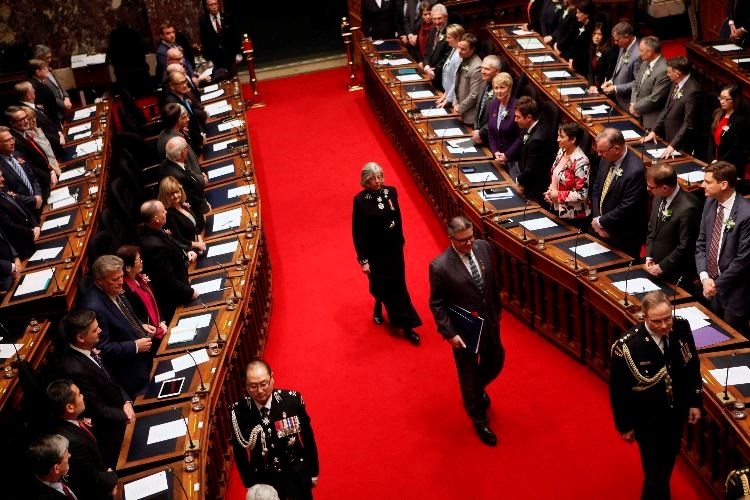Local MLA's Shirley Bond and Mike Morris said Tuesday's speech from the throne from the NDP government was short on details but long on spending promises.
Lt.-Gov. Judith Guichon delivered the speech from the throne on Tuesday afternoon. The speech, which laid out the year's spending priorities for the Horgan government, heavily emphasized the themes of improving affordability for British Columbians.
Tuesday's speech included a commitment of $153 million for childcare in B.C., and a significant increase in spending on affordable housing. The speech also promised a new rural development strategy, an overhaul of the British Columbia Labour Relations Code, and increased funding for rural and northern schools. Few specific details were released outlining the planned spending for these commitments, but a detailed budget is expected to be released on Feb. 20th.
"Starting this year, government will begin to make the largest investment in affordable housing in B.C.'s history, including social housing, student housing, seniors housing, indigenous housing and affordable rentals for middle-income families," read the speech.
Mike Morris, MLA for Prince George-Mackenzie, said he expected the commitments outlined in the speech to come with a hefty price tag.
"It's pretty thin on details, but it's certainly got the prospect of spending a lot of money. That's what got me worried," Morris said Tuesday from Victoria, shortly after listening to the speech.
"This budget looks like it's going to cost a whole bunch of money. I don't know how they're going to do it without increasing taxes."
Morris noted that the previous B.C. Liberal government left the Horgan government with a sizeable $2.7 billion surplus.
Shirley Bond, MLA for Prince George-Valemount, said the throne speech contained few details about economic development. She said that, although the new government committed to a rural development strategy, there was little emphasis in the speech on the importance of the resource sector.
"There was very little talk about how to stimulate the economy, how to reassure our investors who are looking at British Columbia with some uncertainty. So there were very few specifics about economic growth, and how you stimulate the economy and how you're going to continue to generate revenue in this province," Bond said.
"In our part of the province we generate the vast majority of revenues that drive the economy of British Columbia. And so of course we need to pay attention to rural B.C. That's why we had a comprehensive rural development strategy already in place," she said, referring to the previous B.C. Liberal government.
Morris, the opposition critic for Public Safety and Solicitor General, conceded that some initiatives of the NDP government were positive developments for communities in the north. The $20 million initiative announced last week to provide First Nations health authorities with overdose prevention programming, and the announced new hospital in Terrace were both positive developments, he said.
But Morris said many of the issues surrounding policing and public safety in northern and rural communities have so far received short shrift under the Horgan government.
"For far too many years, including when we were in government, rural policing and First Nations communities have always come up on the short end of the stick," Morris said.
"A lot of those missing and murdered women lived at one time in rural B.C. Those situations haven't been adequately addressed yet."
Many First Nations communities require more resources and a more concerted effort from mental health and addictions workers, Morris said.



